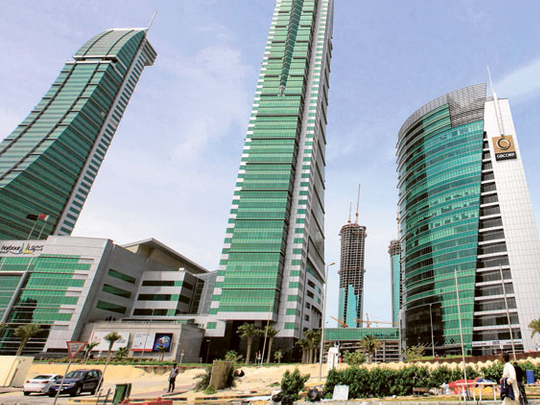
Manama: Bahrain's liberals should overcome their differences and join hands to reassert the concept of national unity and shun rampant sectarianism, the head of the Democratic Tribune has said.
"The current hard polarization trends demand that the democrats should work together to reinvigorate national unity and reinforce cohesion between the different segments of the society," Hassan Madan said.
"It will take some time, but we have no choice. The political scene in Bahrain has long suffered from the absence or weakness of the democratic national movement after it failed to produce an action plan that would distinguish it from the other societies," he said.
The political turmoil has divided the country alongside sectarian lines and attempts to bridge widening gaps have been coy and unsuccessful amid calls for revenge and retributions from both sides.
Crown Prince Salman Bin Hamad Al Khalifa on Friday warned against divisions and said that there would be zero-tolerance towards those who attempt to split the society. Hassan, whose society joined six other political formations during the protests, said that the political movement launched on February 14 to press for constitutional reforms and more rights for the people was eventually hijacked and the ensuing escalation caused serious damages to national unity and society.
"Even the gains achieved through the reforms were hijacked through the use of slogans calling for the downfall of the regime and a series of attitudes that were not endorsed by all and in fact caused serious concerns among a large number of people," he said.
After weeks of hesitation by mainstream political societies, radicals imposed their conditions and refused to engage in the national dialogue offered by Prince Salman to put an end to the political miasma.
Wary of the developments, Bahraini authorities called in the Peninsula Shield, the military arm of the Gulf Cooperation Council (GCC) and imposed emergency laws. Calm was restored and public life was resumed, but the situation remains tense under the threat of social divisions.
A solution to the crisis would be to make sure that the healing process does not exclude anyone, Hassan said.
"Everybody needs to feel that they have a role to play in the nation building process," he said.
In Washington, US Secretary of State Hillary Clinton said "security alone cannot resolve the challenges facing Bahrain", but highlighted that "the United States has a decades-long friendship with Bahrain that we expect to continue long into the future."
In Doha, an American diplomat said that the political turmoil in Bahrain should not mean a change in Washington's relations with Manama.
"Bahrain has always been a US partner and now the country is going through a difficult period, but this is not a reason to change the relations between the two countries," Adam Ereli, Principal Deputy Assistant Secretary for the U S Department of State's Bureau of Educational and Cultural Affairs, said. "It is not said that every time that there is a security problem in a country it is necessary for the US to change its position toward that country. It depends on the circumstances. With Libya it was necessary, but the nature of the conflict in Bahrain is very different from the one that is going on in Libya," Ereli said, quoted by Qatari daily The Peninsula on Wednesday.
The diplomat, deputy chief of mission at the US embassy in Qatar from 2000 to 2003 and ambassador to Bahrain from 2007 until 2011, said that the events unfolding in the region would affect everywhere and everyone.
"This storm of ideas in the Middle East will also have good repercussions as it will take people to think and discuss the nature of the government, the relation between government and people, the typology of change and the resolution of conflicts," he said.
In Kuwait, a local daily said that the Gulf Cooperation Council (GCC) interior ministers will hold a meeting in Abu Dhabi to discuss common security issues.
"The ministers will send a strong signal to outside parties that the security of the Gulf is a common concern and issue," Al Rai newspaper said, quoting Gulf sources it did not name.
In Tehran, Iran's foreign ministry spokesman Ramin Mehmanparast added fuel to the tension between Bahrain and Iran, saying that a media report that two of Iranian citizens were on trial in Bahrain on spying charges "has no truth behind it."
Bahrain on Tuesday said that it had put two Iranians and one Bahraini on trial for providing military and economic information to the elite Iranian Revolutionary Guards between 2002 and April 2010.
Tehran has for the last two weeks been at odds with Kuwaiti authorities after a court in Kuwait City condemned two Iranians to death for their alleged role in a spy ring working for Iran.
Tehran has rejected the charges, but Kuwait has insisted that they were real. On Wednesday, MP Maasooma Al Mubarak criticized Iranian media for the negative campaign it launched against Kuwait.
"The media and political mongering will not help security and stability in the region or positive relations between both shores of the Gulf," she said in remarks published by Al Aan news portal.












